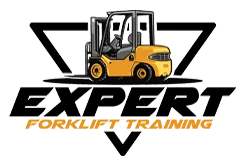Blog Single Style
The essence of interior design will always be about people and how they live. It is about the realities of what makes for an attractive, civilized.
- Home
- Blog Single
- Posted April 10, 2024
- By admin
- 0 Comments
Mastering Your Forklift Certification Exam: Steer Clear of Common Mistakes

As industries continue to rely on forklifts for material handling operations, the importance of forklift certification cannot be overstated. A forklift certification not only ensures workplace safety but also guarantees compliance with regulatory standards. However, obtaining this certification requires passing a rigorous examination, which can be daunting for some. To assist aspiring forklift operators in navigating this process successfully, it is crucial to understand and avoid common mistakes during forklift certification exams.
Understanding the Importance of Forklift Certification
Before delving into the specifics of avoiding mistakes during certification exams, it is essential to comprehend why forklift certification is indispensable. Forklifts, while incredibly useful, can also be dangerous if operated incorrectly. The certification process ensures that operators possess the necessary skills and knowledge to operate these machines safely, minimising the risk of accidents and injuries in the workplace.
Familiarise Yourself with Exam Content
One of the most common mistakes candidates make is underestimating the breadth and depth of the exam content. The forklift certification exam covers various aspects of forklift operation, including safety protocols, equipment inspection, load handling, and maneuvering techniques. To avoid this pitfall, candidates must thoroughly review the exam syllabus and study materials provided by reputable training programs.
Prioritise Safety Protocols
Safety is paramount in forklift operation, and certification exams heavily emphasize this aspect. Many candidates overlook safety protocols or fail to prioritise them during the exam. It is essential to demonstrate a comprehensive understanding of safety procedures, including pre-operational checks, proper load handling techniques, and awareness of potential hazards. Neglecting safety protocols not only jeopardises exam success but also compromises workplace safety in real-world scenarios.
Prioritise Safety Protocols
Safety is paramount in forklift operation, and certification exams heavily emphasize this aspect. Many candidates overlook safety protocols or fail to prioritize them during the exam. It is essential to demonstrate a comprehensive understanding of safety procedures, including pre-operational checks, proper load handling techniques, and awareness of potential hazards. Neglecting safety protocols not only jeopardizes exam success but also compromises workplace safety in real-world scenarios.
Practice Vigilant Equipment Inspection
A critical component of forklift certification exams is equipment inspection. Candidates must demonstrate their ability to conduct thorough pre-operational checks to ensure the forklift is in optimal working condition. Common mistakes include overlooking minor defects, neglecting to check critical components such as brakes and steering, or rushing through the inspection process. Diligent and systematic equipment inspection is key to passing this section of the exam with flying colors.
Master Load Handling Techniques
Efficient load handling is a core competency for forklift operators, and certification exams assess candidates’ proficiency in this area. Mistakes often arise from improper load positioning, exceeding the forklift’s rated capacity, or neglecting to secure loads adequately. Candidates must practice proper load handling techniques, including assessing load weights, center of gravity, and securing methods. Demonstrating mastery in load handling minimises the risk of accidents and showcases competency to examiners.
Hone Your Maneuvering Skills
Forklift operators must navigate various environments with precision and confidence, making maneuvering skills a focal point of certification exams. Common mistakes during maneuvering exercises include misjudging clearance heights, failing to yield to pedestrians or obstacles, and improper turning techniques. Candidates should practice maneuvering in tight spaces, reverse parking, and navigating inclines to build confidence and proficiency in these essential skills.
Time Management is Key
Effective time management can significantly impact exam performance, yet it is a factor often overlooked by candidates. Rushing through exam sections or spending too much time on a single task can lead to errors and ultimately compromise success. Prioritise tasks based on their weightage and allocate time accordingly to ensure thoroughness without sacrificing efficiency. Practicing time management during exam simulations or mock tests can help candidates optimise their performance on the day of the actual exam.
Stay Calm and Focused
Nervousness and anxiety can impair cognitive function and lead to mistakes during certification exams. It is crucial for candidates to stay calm, composed, and focused throughout the examination process. Deep breathing exercises, positive visualisation, and confidence-building techniques can help alleviate test anxiety and enhance mental clarity. Remember, a calm and focused mindset is conducive to optimal performance and increased likelihood of success.
Embrace Continuous Learning and Improvement
Obtaining forklift certification marks the beginning of a journey rather than the culmination of learning. Even after passing the certification exam, it is essential for forklift operators to embrace a mindset of continuous learning and improvement. Keeping abreast of industry developments, attending refresher courses, and seeking feedback from experienced peers can help enhance skills and stay updated on best practices. By viewing certification as a stepping stone rather than an endpoint, operators can continually refine their abilities and contribute to a safer and more efficient work environment.
Seek Mentorship and Guidance
Navigating the complexities of forklift operation can be challenging, especially for novices. Seeking mentorship and guidance from experienced forklift operators can provide invaluable insights and practical tips for success. Mentors can offer guidance on specific challenges, share real-world experiences, and provide constructive feedback to accelerate learning and skill development. Establishing mentor-mentee relationships fosters a supportive learning environment and cultivates a sense of camaraderie among operators, ultimately contributing to professional growth and proficiency.
Utilise Resources Effectively
In today’s digital age, a wealth of resources is available to support forklift operators in their certification journey. From online tutorials and instructional videos to comprehensive manuals and interactive training modules, leveraging these resources effectively can enhance preparation and performance in certification exams. Candidates should explore diverse learning materials tailored to their individual learning styles and preferences, ensuring a well-rounded understanding of forklift operation concepts and techniques.
Additionally, interactive simulations and virtual reality training programs offer immersive learning experiences that simulate real-world scenarios, further enhancing competency and readiness for certification exams.
Foster a Culture of Safety
Forklift certification is not just about individual proficiency; it is about fostering a culture of safety within the workplace. Operators play a pivotal role in promoting safe practices, adhering to protocols, and proactively identifying and mitigating potential hazards. By prioritising safety in daily operations, communicating effectively with colleagues, and leading by example, certified forklift operators contribute to a culture of safety that protects lives, preserves equipment, and enhances overall productivity. Remember, forklift certification is not just a personal achievement; it is a commitment to ensuring the well-being of oneself and others in the workplace.
CONCLUSION
In conclusion, obtaining forklift certification is a pivotal achievement that underscores an individual’s commitment to safety and excellence in material handling. Aspiring operators must recognise the significance of thorough preparation and adherence to safety protocols to succeed in their certification exams.
At Expert Forklift Training, we understand the importance of equipping individuals with the knowledge and skills necessary to excel in forklift operation. Our comprehensive training programs not only prepare candidates for certification exams but also instill a culture of safety and professionalism.
For those embarking on their forklift certification journey, we urge you to take advantage of our expert guidance and resources. Whether you are a novice seeking to enter the industry or a seasoned operator aiming to enhance your skills, our tailored training solutions cater to your needs.
So, take the first step towards mastering your forklift certification exam with Expert Forklift Training. Together, let us elevate standards, prioritise safety, and pave the way for a brighter future in material handling. Contact us now to learn more about our specialised training programs tailored to your needs.
